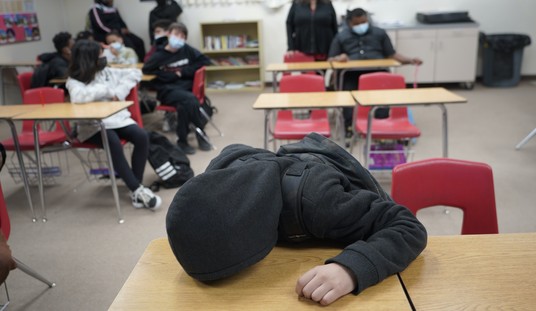 People are talking about depression and suicide in the wake of the shocking death of Robin Williams. That’s mostly a good thing – the lives and deaths of celebrities are a common language, and we can use it to discuss the world we live in. But these conversations seem to me to end up oversimplifying the issue in a way that creates pointless conflict and obscures what we really need to understand about depression and suicide.
People are talking about depression and suicide in the wake of the shocking death of Robin Williams. That’s mostly a good thing – the lives and deaths of celebrities are a common language, and we can use it to discuss the world we live in. But these conversations seem to me to end up oversimplifying the issue in a way that creates pointless conflict and obscures what we really need to understand about depression and suicide.
What tends to happen when people talk about these issues is, they divide the possible responses into two extremes:
1) Suicide is a moral choice, a selfish act, and depression is no excuse for it and is just an emotional state.
2) Depression is a medical condition caused by a chemical imbalance, and people under its influence cannot be condemned or even judged for their actions.
If these seem like straw-man caricatures to you, they are; but people writing about these issues have a tendency, even if they don’t make these arguments themselves, to argue as if they are the only possible positions. This would be a good example of arguing against Strawman #1, and this post from Matt Walsh is a good example of arguing against Strawman #2. Both of those pieces have some valid points to make, and I have no problem with their being made while we are having this conversation, but their strawman-baiting ends up leaving the reader with a set of false choices.
As to suicide itself, as an act, it is absolutely the case that it is an immoral and selfish act – the Catholic Church for good reason has long regarded it as a mortal sin, as it involves not only the willful taking of a human life but also an awful lot of pain and guilt inflicted on innocent people around the person who commits suicide.
But. But. Even in our human and thus inherently flawed system of criminal justice, we show mercy to those who do things when not in their right minds. I have to believe that God, whose mercy is beyond our comprehension, is likewise merciful to those who take their lives while not in their right minds. That’s not true of every suicide, but it is generally the case when suicide follows depression. Anyone who has suffered clinical depression or dealt with anyone who has knows the devastating effects it can have on a person’s judgment, their tolerance for suffering, even their will to live. Of course, people in Robin Williams’ position should be viewed with mercy, and with pity, for reaching a point where they could no longer see hope.
At the opposite end of the scale, however, it is perilous and maybe more harm than good to reduce depression strictly to a question of chemistry. Because the problem of depression runs deeper than that, and if we had drugs to fix it entirely, Robin Williams and others like him would probably still be alive today. It’s actively dangerous to tell people their problems are just a matter of chemicals, then give them drugs and tell them it will all be OK, when it actually won’t and they may feel like they have just lost the only hope there was. It’s dangerous to tell people they have no free will in the face of depression, when they do – when the thing they need most is to have it pressed into their brains that no matter how dark things get, there is always help, always hope. Depression is a sickness of the soul, and the fact that we can diagnose its physical manifestations doesn’t change that. Ben Stein, I think, gets closest to this:
I no longer even remotely believe in psychoactive anti-depressant meds for suicidal thoughts. I’ve taken them long ago and they made me suicidal beyond any other times in my life. I strongly suspect that overuse of psychoactive anti-depressants and the contrary effects they often seem to have is a factor in military suicides. Any drug strong enough to change your basic mood is going to be dangerous.
…In my own life, I have found that prayer, intense rest, fresh air, and above all, 12-step programs for helping persons who want to get off the suicide express before it reaches its final destination in hell, work miracles. I have never known a person injured by prayer. I have never known a person driven to suicide by going to 90 meetings in 90 days and maybe 180 meetings in 90 days.
…I carry with me a gift from a friend who said it had saved his life many a time. It is a simple piece of paper that reads, “NOT TODAY.” It has brought me peace and salvation many a time. Anyone can get through just one more day and by tomorrow you might feel completely different.
Know this: Just for me, the 12-step programs are not really about keeping the drink or the drug out of my mouth. They are about keeping the gun out of my mouth. They work and they work wonders.
What works for Ben Stein may not be, precisely, what works for you, or for someone else in need of help. (Mollie Hemingway, on Twitter, suggested this book from a Lutheran pastor’s first-person account of depression). The mind and the soul are complex things. But while depression is a disease, it’s not just a disease, and combating it is a matter of treating a person, not treating a disease alone.
You know, we don’t talk much anymore in our society about evil spirits. The Bible is full of such talk, and people in more primitive days ascribed all sorts of things to them, including a great deal of what we would now describe as mental illness. We’ve moved beyond that kind of talk because – aside from the handful of cases these days in which the Church still calls for exorcisms – science has found their chemical footprints and declared them to be diseases. Yet, in most cases we are no closer to explaining their causes than people were in Jesus’ time. In many cases, we’re still far from curing them with science as well. Maybe there is wisdom in the fact that we still colloquially refer to people like Robin Williams as battling their “demons”.
My pastor is fond of quoting a scene from the play written by George Bernard Shaw (a famous atheist) about Joan of Arc, where she is quizzed about the voices she hears, telling her to save France in the name of God:
JOAN: I hear voices telling me what to do. They come from God.
ROBERT: They come from your imagination.
JOAN: Of course. That is how the messages of God come to us.
Or, to use a more recent example from the world of fiction, Harry Potter asks Dumbledore, when he meets him at King’s Cross at a place between life and death, “Is this real? or just happening inside my head”? To which Dumbledore replies, “Of course it is happening inside your head, Harry, but why on earth should that mean that it is not real?” To say that depression is all in your head, in your mind, is only to say that it is where you are. In the words (or perhaps paraphrased words) of C.S. Lewis, “You don’t have a soul. You are a soul. You have a body.”
We pity and do not condemn the dead, because they lost hope, lost sight of the fact that they had a choice, lost the strength to make that choice. But the living need to know that that choice is always there. Of course, when modern medicine offers help, when it finds the physical footprints of demons in our minds, we should not refuse its aid. Scientific reason is one of the gifts God has given us to use to help those in need. But we should also not forget that a sickness of the soul needs every kind of help that God and man can offer.












Join the conversation as a VIP Member